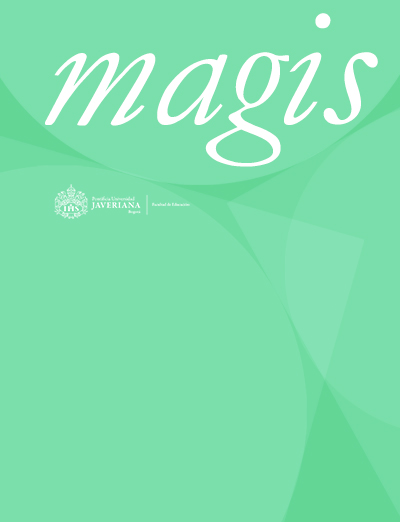Resumen
El propósito de esta investigación es comprobar que,mediante el Método del Caso (MdC),los estudiantes de Economía adquieren las competencias definidas en los nuevos planes de estudio para la materia de Análisis de Estados Financieros(AEF). La entidad elegida para elaborar el caso es Abengoa,por ser una compañía internacional que desde 2008 atraviesa problemas financieros importantes.Este caso se ha aplicado a una muestra de 114 estudiantes de tres universidades españolas.Los resultados muestran que el MdC contribuye al desarrollo de las competencias académicas y mejora la formación de los futuros economistas.
Asopa, V. N. & Beye, G. (2001). Appendix 2: The Case Method. En Management of Agricultural Research: A Training Manual. Module 1: Institutional Agricultural Research: Organization and Management. Rome: Food and Agriculture Organization of the United Nations, FAO. Disponible en: http://www.fao.org/docrep/W7500E/w7500e0b.htm#TopOfPage
Bell, P. C. & Lanzenauer, C. H. von (2000). Teaching Objectives: The Value of Using Cases in Teaching Operational Research. The Journal of the Operational Research Society, 51 (12), 1367-1377. https://doi.org/10.2307/254034
Benito, Á. & Cruz, A. (2005). Nuevas claves para la docencia universitaria : en el espacio europeo de educación superior. Madrid: Narcea.
Boehrer, J. & Linsky, M. (1990). Teaching with Cases: Learning to Question. The Changing Face of College Teaching. New Directions for Teaching and Learning, 42, 41-57. https://doi.org/10.1002/tl.37219904206
Cannone, G. & Ughetto, E. (2014). Born Globals: A Cross-Country Survey on High-Tech Start-Ups. International Business Review, 23 (1), 272-283. https://doi.org/10.1016/J.IBUSREV.2013.05.003
Cochran, J. J. (2000). Introductory Business OR Cases: Successful Use of Cases in Introductory Undergraduate Business College Operational Research Courses. Journal of the Operational Research Society, 51 (12), 1378-1385. https://doi.org/10.1057/palgrave.jors.2601051
Foran, J. (2001). The Case Method and the Interactive Classroom. The National Education Association Higher Education Journal, 17 (1), 41-51. Disponible en: http://www.nea.org/assets/img/PubThoughtAndAction/TAA_01Sum_05.pdf
Hassall, T.; Lewis, S. & Broadbent, M. (1998). Teaching and Learning Using Case Studies: A Teaching Note. Accounting Education, 7 (4), 325-334. https://doi.org/10.1080/096392898331108
Herreid, C. F. (2011). Case Study Teaching. New Directions for Teaching and Learning, 128, 31-40. https://doi.org/10.1002/tl.466
Iahad, N. A.; Mirabolghasemi, M.; Mustaffa, N. H.; Latif, M. S. A. & Buntat, Y. (2013). Student Perception of Using Case Study as a Teaching Method. Procedia - Social and Behavioral Sciences, 93, 2200-2204. https://doi.org/10.1016/J.SBSPRO.2013.10.187
López Caballero, A. (1997). Iniciación al análisis de casos: una metodología activa de aprendizaje en grupos. Bilbao: Ediciones Mensajero.
Martínez Sánchez, A. (1995). El estudio de casos como estrategia didáctica para la formación de los profesionales de la acción social. En El estudio de casos para profesionales de la acción social, 15-38. Madrid: Narcea.
Miguel Díaz, M. de (coord., autor de parte) (2006). Metodologías de enseñanza y aprendizaje para el desarrollo de competencias: orientaciones para el profesorado universitario ante el espacio europeo de educación superior. Madrid: Larousse, Alianza Editorial.
Penn, M. L.; Currie, C. S. M.; Hoad, K. A. & O'Brien, F. A. (2016). The Use of Case Studies in OR Teaching. Higher Education Pedagogies, 1 (1), 16-25. https://doi.org/10.1080/23752696.2015.1134201
Sarasa, C. P. (2011). Using Active Learning in the Teaching of Accounting a Case Study on the Business Administration's Bachelors of the Universitat Politècnica de València. En International Association of Technology, IATED (ed.). ICERI2011 Publications: 4th International Conference of Education, Research and Innovation, Madrid, 14th-16th of November, 2011, Madrid, Spain. ICERI2011 Proceedings, 3822-3829. Madrid: IATED.
Stewart, J. P. & Dougherty, T. W. (1993). Using Case Studies in Teaching Accounting: a Quasi-Experimental Study. Accounting Education, 2 (1), 1-10. https://doi.org/10.1080/09639289300000001
Swanson, D. A. & Morrison, P. A. (2010). Teaching Business Demography Using Case Studies. Population Research and Policy Review, 29 (1), 93-104. https://doi.org/10.1007/s11113-009-9155-4
Yadav, A.; Lundeberg, M.; Deschryver, M.; Dirkin, K.; Schiller, N. A.; Maier, K. & Herreid, C. F. (2007). Teaching Science with Case Studies: A National Survey of Faculty Perceptions of the Benefits and Challenges of Using Cases. Journal of College Science Teaching, 37 (1), 34-38.
La revista magis, Revista Internacional de Investigación en Educación by Pontificia Universidad Javeriana se encuentra registrada bajo la licencia Creative Commons Reconocimiento 4.0 Internacional. Por lo tanto, esta obra se puede reproducir, distribuir y comunicar públicamente en formato digital, siempre que se reconozca el nombre de los autores y a la Pontificia Universidad Javeriana. Se permite citar, adaptar, transformar, autoarchivar, republicar y crear a partir del material, para cualquier finalidad (incluso comercial), siempre que se reconozca adecuadamente la autoría, se proporcione un enlace a la obra original y se indique si se han realizado cambios. La Pontificia Universidad Javeriana no retiene los derechos sobre las obras publicadas y los contenidos son responsabilidad exclusiva de los autores, quienes conservan sus derechos morales, intelectuales, de privacidad y publicidad.
El aval sobre la intervención de la obra (revisión, corrección de estilo, traducción, diagramación) y su posterior divulgación se otorga mediante una licencia de uso y no a través de una cesión de derechos, lo que representa que la revista y la Pontificia Universidad Javeriana se eximen de cualquier responsabilidad que se pueda derivar de una mala práctica ética por parte de los autores. En consecuencia de la protección brindada por la licencia de uso, la revista no se encuentra en la obligación de publicar retractaciones o modificar la información ya publicada, a no ser que la errata surja del proceso de gestión editorial. La publicación de contenidos en esta revista no representa regalías para los contribuyentes.



